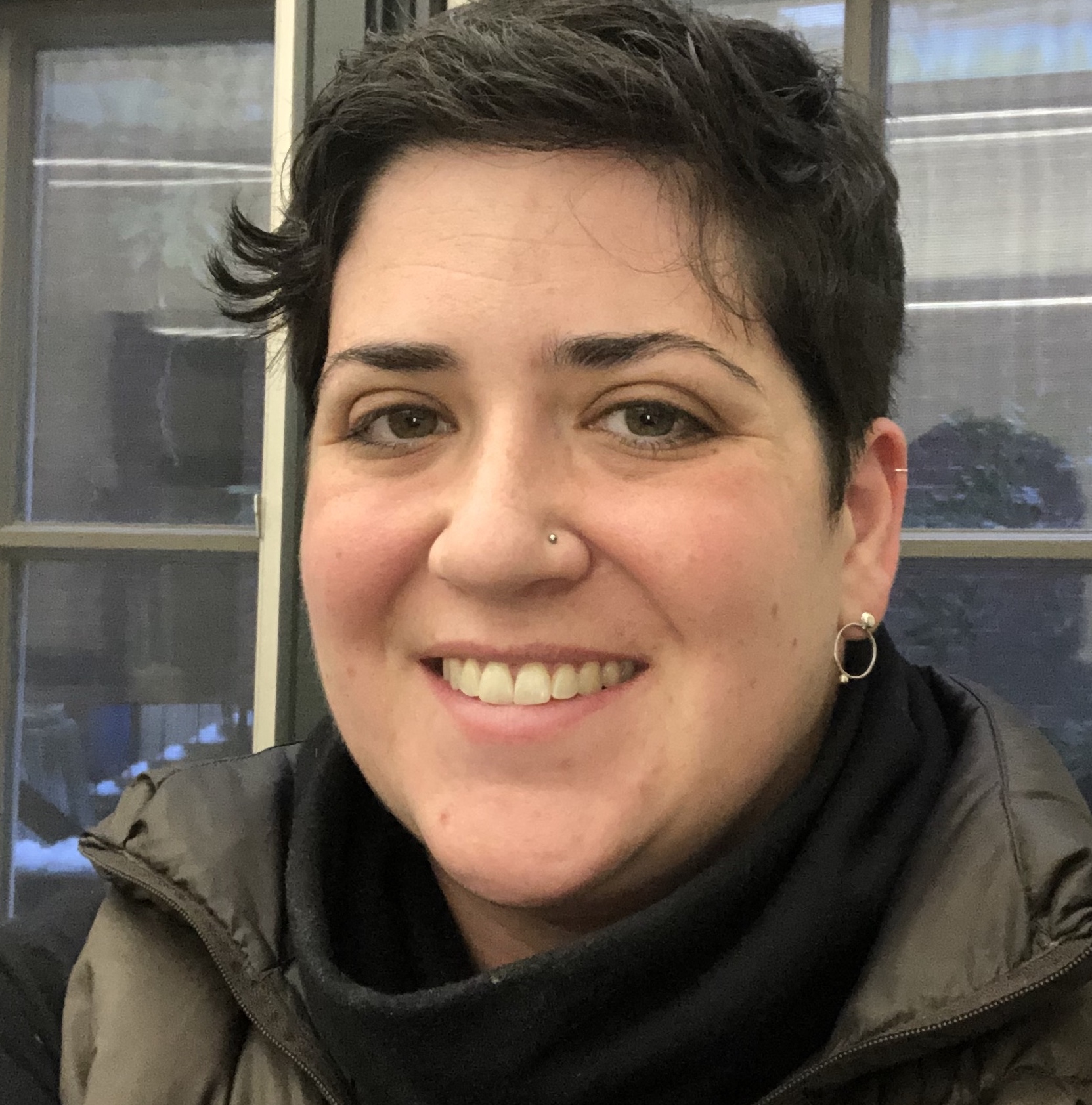We can change the world to fit us instead of the other way around
By cultivating the relationships and skills to create what we need to thrive, we move together towards an empowered, inclusive, interconnected future. Through therapy, coaching and future creative programming we fearlessly collaborate to imagine, prototype and build the lives, communities and world we deserve.
You can read more about the vision that grounds our mission and our plans for the future here.















Hi, I’m Miriam Zisook!

I primarily work with neurodivergent, disabled, fat, queer and trans folks. A lot of people in these groups arrive to therapy feeling like there is something wrong with how they think or feel or experience the world. I work to help people to understand and accept how their brains and bodies work and figure out what they need to thrive and how to go towards that. I do my best to bring my full intellect, heart, and spirit to sessions, knowing that it matters that you can feel your therapist caring about you. I am often a good fit for clients who like their therapist to be active, collaborative and problem-solving oriented.
While therapy centers on emotions, my approach is also pragmatic towards building skills and capacities. My work is informed by narrative therapy, solution focused therapy, attachment theory, and understanding of how human nervous systems work. My approach to therapy is also informed by my experience as a maker and designer.
The best way to tell if a therapist is a good fit is to meet and see how it feels to connect. I’d love to hear from you and set up a meeting so we can explore if our connection feels supportive and helpful. If you’re looking for therapy for your child, we’ll start by connecting as adults and make a plan together for how to bring your child in.
How I got here
As a designer and social worker, I have spent the past decade working toward inclusion and empowerment of disabled and marginalized people. Across the projects I worked on as a designer and researcher, I was drawn to participatory design strategies that engaged the users and audiences of products in their design process. Inviting a wide range of humans—including engineers, doctors, patients, students, and teachers—into the design process was powerful and transforming.
At the same time, I was recovering from the perfectionism and grind of art school by rebuilding my own relationship with making and craft, and beginning a journey of healing my relationship with my body by making my own clothes. Through these explorations, I came to the idea that my design skills might be most powerful not for making things, but as tools to help people experience the same sense of agency and healing I was developing by making. I followed that instinct through the process of becoming a social worker and therapist.
As a social worker, I have provided mental health counseling, coaching and support groups in schools and outpatient mental health. As a therapist, I bring the designer's skills of problem definition, thoughtful standard setting, creativity and resourcefulness to the challenge of individual and collective wellbeing.
Unstoppable Studios was born out of a desire to further explore the intersections of design, craft, emotional wellbeing and relationships and to invite others into those explorations with me.
As a designer and social worker, I have spent my career working toward justice, inclusion and empowerment of disabled and marginalized people. Across the projects I worked on as a designer and researcher, I was drawn to participatory design strategies that engaged the users and audiences of products in their design process. Inviting a wide range of humans—including engineers, doctors, patients, students, and teachers—into the design process was powerful and transforming.
At the same time, I was recovering from the perfectionism and grind of art school by rebuilding my own relationship with making and craft, and beginning a journey of healing my relationship with my body by making my own clothes. Through these explorations, I came to the idea that my design skills might be most powerful not for making things, but as tools to help people experience the same sense of agency and healing I was developing by making. I followed that instinct through the process of becoming a social worker and therapist.
As a social worker, I have provided mental health counseling, coaching and support groups in schools and outpatient mental health. As a therapist, I bring the designer’s skills of problem definition, thoughtful standard setting, creativity and resourcefulness to the challenge of individual and collective wellbeing.
My therapeutic practice was born out of a desire to further explore the intersections of design, craft, emotional wellbeing and relationships and to invite others into those explorations with me.

